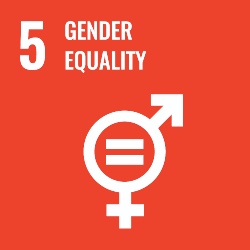
How we’re helping the most vulnerable in our society deal with the COVID-19 outbreak
How does the social care system cope with the coronavirus outbreak and keep its workforce safe? And how do you discuss the sensitive topic of end-of-life care? Professor Arpana Verma and colleagues are investigating solutions to these critical questions.
The challenge
During a global pandemic, protecting the most vulnerable people in our society becomes an even greater and more urgent challenge. This is compounded by the need to safeguard those who care for them.
Investigating a solution
Professor Arpana Verma is Head of the Division of Population Health, Health Services Research and Primary Care in The University of Manchester’s Faculty of Medicine, Biology and Health. She is Director of Manchester Urban Collaboration on Health and honorary Consultant in Public Health at Public Health England.
She’s working with colleagues across the University, Greater Manchester healthcare bodies, local authorities, Public Health England and researchers from the University of Salford and Manchester Metropolitan University to determine a set of evidence-based interventions that will protect and the elderly and vulnerable population, as well as the social care workforce, during the COVID-19 outbreak.
“We’ve gathered a Greater Manchester group of researchers together who can help with care homes and those people that are receiving care in their own homes,” says Professor Verma.
“Similarly to how we’re trying to protect frontline NHS workers, we’re trying to do the same thing for social care. We’re trying to ensure that we protect our older adults or vulnerable groups that might be receiving care from others.
“There’s loads of guidance and lots of things very specific to coronavirus, and if you’ve got a full workforce, then it might be possible to do all of that now. But how possible is it if you’re depleted? Being able to protect the workforce also allows protection of the patient.”
Interdisciplinary working
Plans are also under way to link up with work done by the interdisciplinary Manchester Institute for Collaborative Research on Ageing and the NIHR Policy Research Unit led by Professor Chris Todd on unpaid carers and the workforce.
“We have completed our health needs assessments on care homes and domiciliary care, post-ICU pathways and are about to commence the second set of interviews to ensure we are prepared for flu season and the winter pressures on the NHS and care sector.
"The importance of working across all sectors to bring together the evidence-based recommendations for policy makers rapidly is a key component of our work. We need to present real-time data and real-time advice, if we are going to beat this pandemic, especially as we move into the winter.
"We have to learn from our local, national and global partners for the greater good.”
Professor Verma is grateful that the University can pull together experts from multiple fields to solve pressing real-world problems like coronavirus.
“Where else would you get that brain power except at a big university like ours? We are greater than the sum of our parts,” she says. “That’s what interdisciplinary science is all about.”
Communication
Professor Verma believes communication is the key to turn research into impact.
“If we’re going to reduce inequalities, we’ve got to take everyone with us,” she says. “What’s really hard is ensuring that we’re giving our messages to a wide range of different groups.
“Communication is absolutely fundamental and, if anything, coronavirus has shown us how differently people communicate and then how much it can affect how people behave. I can’t imagine any better natural experiment than what happens whenever the prime minister says something and how it influences everything from individuals all the way through to the media.
“That’s another crucial part we really need to play. We’ve got a really privileged position that allows us to communicate with the public and maintaining that trust means we’ve got to be absolutely spot on with our communications. It’s about leaving no one behind.”
Meet the researcher
- Professor Arpana Verma, Clinical Professor of Public Health and Epidemiology

